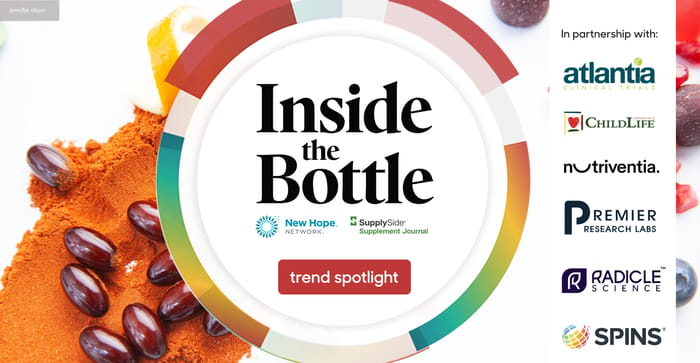Supplement quality efforts ripple through value chain
Supplement brands, retailers and trade groups are on a long road to rebuild consumer trust.

Transparency and the consumer’s right to know everything about products—from where they were made to how they were made—are increasingly important for the public and regulators.
While problems with dietary supplements, from adulterated ingredients to claims that don’t match the science, are nothing new, all these issues have gained renewed fervor over the last year.
Supplements retail giant GNC was one of four defendants in the sting operation in February 2015 by the New York attorney general’s office, which renewed the issue of product quality to the larger public. “We emerged from that inquiry that all our products were fine,” said Guru Ramanathan, chief innovation officer at GNC. “That got us to thinking about what’s the challenge. We decided we needed greater control over what is happening.”
Trade groups, high-value companies with a lot to lose, and entrepreneurial experts have all joined the battle to raise the bar on consumer trust with supplements.
“Phase one is botanicals,” said Christine Burdick-Bell, vice president and general counsel of Pharmavite, a major supplement brand, at the Ingredient Marketplace trade show in Orlando last week. “But that’s not the only area where we need supply-chain integrity. Once we get botanicals established, version 2.0 is in other areas.”
Trade group Council for Responsible Nutrition has just unveiled its product registry concept, mandatory for members of the organization. The plan is to have the registry up and running by the end of the year. The registry is characterized by three things:
Finished products only. It will be searchable by brand, marketer and ingredients, and will house a PDF of the label. “It gives consumers a way to learn more about what’s out there so they can evaluate a product,” said Steve Mister, CEO of CRN.
Background information for retailers, available on a permission basis, such as third-party certifications and FDA inspection summaries.
Complete access available to the FDA.
Upon resolving its case with the New York attorney general, GNC immediately got involved with CRN’s effort with the product registry. It also began work with its supply chain, confirming GMPs were being followed, and creating an audit template checklist specific to cultivating and processing.
As the top concern cited by FDA in its GMP warning letters is around ingredient and finished product testing, independent companies have stepped in to get suppliers and manufacturers up to speed.
“The big issue is to identify raw materials,” said Trish Flaster, co-founder of consultancy IDDI: Identification of Dietary Ingredients. “You have to have traceability and transparency so you make sure you don’t have adulteration. This is what’s undermining confidence with consumers.”
Trade group the American Herbal Products Association has established a number of resources to help companies verify the identity of botanical ingredients and detect adulteration. One is its Botanical Identity References Compendium, an online resource that includes nomenclature, voucher specimens, physical characteristics and test methods for 190 species. This searchable compendium is designed to help qualified and experienced analysts determine the identity of plant species and articles of trade obtained from these plants.
"Adulteration of valuable botanical ingredients with cheaper material has existed as long as plants have been traded or sold,” said AHPA president Michael McGuffin, “but evolving technology and continued collaboration between the industry and governments are creating new solutions and safeguards to detect and prevent adulteration."
Another international adulteration issue is drug-spiked products that are unlawfully masquerading as dietary supplements. Governments and the industry have been increasing efforts to deter this illegal activity. AHPA maintains KeepSupplementsClean.org, which alerts consumers and the industry about illegal drug-spiked products.
Another problem in the industry is scurrilous claims-making. This runs from the egregious drug claims to the more subtle claims that don’t use the correct dosage or are based on a formulation that differs substantially from the marketed product.
“Understanding the profile of the product and desired claims is one of biggest challenges,” said Josh Baisley, associate director of clinical development at Nutrasource, a company that helps design and run clinical trials, helps with regulatory requirements and submissions, and provides certification programs including non-GMO and fish oil standards. “The marketing group has claims they want, the scientific team has claims they want, and they’re not always in agreement with what that is. It’s our job to explain the risks and benefits of what’s necessary to substantiate those claims to provide proper guidance.”
The great industry hope is that, in measures large and small, changes will ripple from farming to distributor practices, all the way through the value chain to brand holders and ultimately to consumers. It’s a long road to rebuild consumer trust, but it sure beats the alternative.
About the Author
You May Also Like





